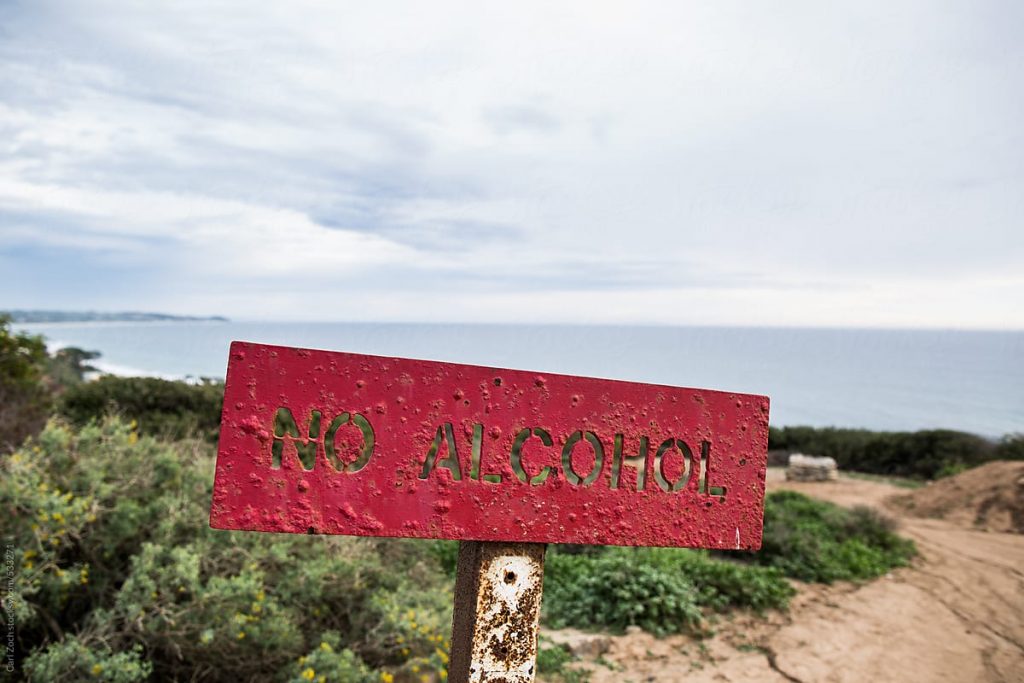It has been established that denial is part of the disease of addiction – be it to alcohol or any other drug or even behavioural addictions such as gambling.
What is Denial?
Denial is a psychological process that occurs at the unconscious level in the alcoholic. The alcoholic’s mind creates an illusion that convinces him that it is the ‘reality’. He is not consciously aware that this change in thinking is happening.
The individual will not disclose accurately the quantity, frequency or problems associated with his excessive alcohol consumption.
The person will minimize, explained it away, rationalize or deny the problems associated with his drinking altogether.
For instance, violent fights with his/ her partner are described as a minor debate, or justified as due to the arrogant behaviour of the partner, or simply ignored.
The partner, friend, relative or even a therapist may perceive this ‘denial’ as lying.
It is a method adopted by the alcoholic to escape taking responsibility for his harmful actions.
As a result, people close to the alcoholic become hostile and develop a strong dislike toward him for his dishonesty and irresponsibility.

Why do alcoholics deny their problems?
Drinking is acceptable behaviour in our society, and alcohol is perceived as an essential part of the “good life”. For most people, drinking is a harmless activity generally associated with social occasions.
Unfortunately, 2 out of 10 people who drink alcohol slowly graduate from a harmless to harmful activity. Once the person starts developing problems, he/ she is branded as a ‘drunkard‘, and a social stigma immediately gets attached to him/ her.
Some other slang words for alcoholics are: boozer, lush, tippler, barfly, stumblebum or bum, wasted, alkie…
In other words, we reinforce drinking (in social circles), but stigmatize the alcoholic. He is looked upon as a morally less, or evil, person who needs to be punished, rather than a sick person who needs support, understanding and professional help.
No one would like to be categorized as an evil, morally or mentally deficient person and subject to rejection, ridicule or social boycott.
This sets the stage for denial.

The Reasons Behind Denial
As the person’s drinking progresses and leads to increasing problems, a conflict is created.
On the one hand, alcohol has become a significant part of his life. He drinks obsessively and compulsively – he likes to drink because it gives him a sense of well-being.
On the other hand, reality keeps interfering in his awareness due to the problems created by his addictive behaviours – in the family, at work, social interactions, school, etc.
At this point, he has only two options before him: reject drinking or reject reality. He begins to reject reality because he is unable to stop drinking.
As the disease of addiction progresses, giving up drinking becomes increasingly difficult. Realities of life appear more and more bitter, and consequently, the mechanism of denial also gets further reinforced.
Two diametrically opposite beliefs can never coexist for a very long period in one individual. One belief overtakes and becomes ‘reality.

Denial as Addiction Progresses
Early use of alcohol generally positively changes the individual’s mood. Most people start using mood-altering chemicals in a social setting with friends to help them ‘loosen up.
The alcoholic learns that drinking alcohol makes him feel better.
It soon becomes a compulsion, not an option.
For a few hours, it makes him forget his problems, reduces his fears, anxiety, and loneliness and gives him confidence that he can solve his problems – a false sense of courage coupled with euphoria.
Progression of Addiction
Gradually, there appears to be a difference in the emotional effect of using alcohol for the person who becomes dependent on it.

Initially, the alcoholic drinks much more than others – he doesn’t sip drinks, he gulps. He conceals the amount he drinks. He drinks more than others, more often than others. Booze means far more to him than to others.
For him, drinking is no longer a matter of choice or display of strength.
This is the first sign of alcoholism. Now the individual hides the bottle and drinks alone, and once he takes a drink, he cannot stop. Denial gets stronger as the addiction progresses.
Alcoholic Becomes a Prisoner of his Denial
Everyone and everything that were important in his life become secondary, and the alcoholic begins to reject everything that may threaten his drinking.
As this condition develops, his self-image starts deteriorating. He cannot keep track of his behaviour, and he’s losing contact with his emotional self. He has repeated incidents of embarrassments and shame, which he tries to either deny, justify or forget.

His defence systems continue to grow so that he can survive in the face of problems. The greater the pain and shame, the higher and more rigid the defence becomes. This happens without his conscious knowledge. Finally, he becomes a prisoner of his defence mechanism.
This rational activity erects a secure wall around him to save himself from the increasingly negative feelings about himself.
He gradually gets separated from those feelings and is largely unaware of his destructive negative emotions within him.
Not only is he unaware of his highly developed defence system, but he is also unaware of the powerful feelings of self-hatred buried behind it, sealed off from conscious knowledge but explosively active.
Because of this, his judgement is progressively impaired.
Drinking to Feel ‘Normal’
Instead of returning to ‘feeling normal’, after the ‘high’ wears off, the person experiences negative consequences due to excessive use of alcohol (embarrassment arising out of actions done under intoxication, such as aggression, drunken driving, blackouts…).

The problem gets compounded by the fact that these defences, by locking in the negative emotions, has now created a mass of free-floating anxiety, guilt, shame and remorse, which become chronic in due course.
Moreover, he tries to project a normal image to others while he’s feeling stressed inside. This adds to his stress.
The person can no longer start a drinking session from the ‘normal point’, whereas, before his illness, he could always do so and then proceed to ‘feel good’.
Now he starts from a depressed or painful emotional state and drinks to feel normal. In the final stage of alcoholism, he has no option but to drink to feel normal.
Denial Protects the Alcoholic from his Reality
Now that there’s an absolute dependence on alcohol, it is impossible for him to fully realize that there is a link between his negative feelings or behaviour and alcohol.
Denial (or irrational thinking) begins to develop to protect the alcoholic from the reality of his alcoholism.
As he becomes more and more dependent on alcohol, the ‘denial mechanism’ takes various forms:
Simple Denial
Initially, the alcoholic totally denies any problem associated with his/ her drinking, even though the issues are evident to others.
He may admit that he takes alcohol but denies that his alcohol intake is causing any problems.
“Drinking produces no problems whatsoever. As a matter of fact, I feel ‘good’, and I can solve my problems better after a drink.”
Minimizing
He accepts that his drinks lead to some problems but insists that these problems are not as severe or as many as others make them out to be. He tries to convince himself that it is not a big deal.
“I drink, alright…but it is not all that bad…I drink only on weekends.”
“I give enough money to my wife to run the house. I am not overspending on my drinks, as she complains.”
“It certainly doesn’t cause any financial problem, and I still have a good job.”

Blaming (or Projecting)
The alcoholic blames others for his/ her problems. In this case, he denies responsibility for his alcohol-related problems and shifts the responsibility to someone else. It is only the cause of the behaviour which is rejected, not the behaviour itself.
“My wife doesn’t respect me. I slog only for her and my children. But she doesn’t understand my problems. She is constantly on my back. She does not bother about my feelings at all. I drink only to forget my misfortune.”
Rationalizing (giving excuses)
The alcoholic gives innumerable excuses, justifications and alibis for his behaviour; but never admits that the real cause for his adverse behaviour is his excessive drinking.
“My boss kept on saying that I have not completed my assignment on time. This is because he is prejudiced against me and never cooperates whenever I ask for help! I drink only to calm my nerves.”
Intellectualizing
Here the person avoids facing alcohol-related problems by dealing with them on a superficial, theoretical or intellectual level.
“I am a doctor, and I know what it means to be an alcoholic. How can you ever come to the conclusion that I drink excessively, thus damaging my liver or brain? I will not get angry with you because it does not do any good anyway.”
Diverting
The alcoholic changes the subject of conversation whenever any reference to alcohol use or alcohol-related problems crops up.
The alcoholic does not allow the friend even to finish the sentence. He immediately interrupts and diverts, saying: “I heard you have not yet booked your ticket to London. Nowadays bookings are becoming difficult. You have to book sufficiently in advance. If you wish, I can help. The booking agency is known to me.“
The alcoholic’s friend: “You are developing severe problems due to excessive drinking. It’s high time that you take care of your health, see a doctor and go for treatment.“

Hostility
Another form of denial which the alcoholic may use to his advantage is anger and irritability.
For instance, he may get angry and aggressive whenever addiction is broached because he has learnt from his experience that his anger will make the other person avoid the topic or leave that place.
Silence
Here the addict maintains strict silence, whatever be the provocation. He/ she uses this method to withdraw from reality. After listening to the well-wisher, he or she continues to do whatever they wish to do.

Denial needs to be addressed
If the alcoholic is rescued from every crisis by family, friends or colleagues, there is little chance for him/ her to recover.
Recovery is possible only if the major block (Denial) is broken.
In reality, the alcoholic is helpless; by himself, he cannot break the lock. He will recover only if the enablers learn to break his dependency on them by refusing to help him get out of the crises created by his addictive behaviours.
When the alcoholic feels helpless, desperate due to a crisis and no one ready to rescue or take up his responsibility, he will have to face the problems he created. He will find it impossible to deny the problems caused by his behaviour. He will hopefully then seek help.
He will finally realize that he has a real problem that needs to be addressed. This is the motivation required to initiate recovery.
The famous “Rock Bottom” of AA
Many traditional AA (Alcoholics Anonymous) members believe that a person has to hit “rock bottom”. According to them, this is the crisis that opens the eyes of the alcoholic. When he/ she has no more to sink, he will be ready for help.
Professionals Need to Manage Denial
Addiction therapists are trained to break through the defenses of the alcoholic so that he or she realizes not just the existence but the enormity and gravity of the problem. This is the doorway to recovery.


